Materials Used for Pipe Spools: Ensuring Durability, Efficiency, and Performance in Piping Systems
Pipe spools play a vital role in the construction and operation of various piping systems, particularly in industries such as oil and gas, petrochemicals, power generation, shipbuilding, and more. These prefabricated sections connect larger systems, simplifying assembly and reducing on-site work. Given the critical nature of their function, selecting the appropriate materials for pipe spools is essential to ensuring their durability, efficiency, and performance. In this article, we will explore the materials commonly used for pipe spools, their properties, and why they are chosen for specific applications.
Meaning and Definition of Pipe Spools
Before diving into the materials, it's essential to understand what pipe spools are. Pipe spools are prefabricated piping sections, designed to be integrated into a larger piping system. They consist of pipes, fittings, flanges, valves, and other essential components, which are precisely fabricated and assembled in a controlled environment. This prefabrication process guarantees high accuracy, reduces on-site labor, and ensures that the components perform reliably under varying conditions.
The fabrication process involves several steps, including design and engineering, material selection, cutting and preparation, assembly and welding, and testing. A crucial aspect of this process is choosing the right materials, as they directly impact the performance and longevity of the piping system.
Materials Commonly Used for Pipe Spools
1.Carbon Steel
Carbon steel is one of the most widely used materials in pipe spool fabrication due to its strength, durability, and relatively low cost. It is commonly used in industries where moderate temperature and pressure conditions are present, such as water treatment, construction, and oil and gas pipelines. Carbon steel is known for its ability to withstand mechanical stress and its good performance in environments that are not highly corrosive. Coatings or linings are often applied to improve its resistance to corrosion in harsher environments.
2.Alloy Steel
Alloy steel is often used for pipe spools when the system operates under extreme conditions, such as high pressure, high temperatures, or exposure to corrosive chemicals. Alloy steel contains a mix of elements such as chromium, nickel, molybdenum, and vanadium, which enhance its mechanical properties and resistance to wear, corrosion, and oxidation.
Applications:Chemical processing plants,Power generation plants,Refineries,High-temperature and high-pressure systems
3.Stainless Steel
Stainless steel is favored in applications where corrosion resistance is critical. It is commonly used in industries such as food and beverage processing, pharmaceuticals, and chemical manufacturing. Grades like 304, 304L, 316, and 316L are especially popular due to their high resistance to oxidation and chemical attack. Stainless steel pipe spools are ideal for systems handling aggressive fluids or where hygiene is a priority. Additionally, their long service life and low maintenance make them a cost-effective solution in the long run.
4.Duplex Stainless Steel
Duplex stainless steel offers a balanced combination of high strength and excellent corrosion resistance, particularly in chloride-containing environments such as offshore oil platforms, desalination plants, and marine facilities. This material is stronger than conventional austenitic stainless steel and less prone to stress corrosion cracking. Common grades like S31803 and S32205 are widely used for their resistance to pitting and crevice corrosion, making duplex stainless steel a go-to choice for critical service conditions.
5.PVC (Polyvinyl Chloride)
Polyvinyl chloride (PVC) is a plastic material that is frequently used in piping systems for non-critical applications, particularly in household plumbing, irrigation systems, and low-pressure industrial applications. While not as strong or durable as metals like steel, PVC offers cost-effectiveness and easy handling for applications that don’t require high strength or heat resistance.
Applications:Household plumbing systems,Irrigation systems,Wastewater management,Chemical and food processing (low-pressure applications)
6.Copper
Copper is a non-ferrous metal known for its excellent corrosion resistance, especially in potable water systems. It is commonly used in applications where high reliability and low maintenance are required, such as in medical gas systems and HVAC systems. Copper’s high thermal conductivity also makes it ideal for heat exchange systems.
Applications:Water systems (drinking and wastewater),HVAC systems,Medical gas systems,Heat exchangers and refrigeration systems
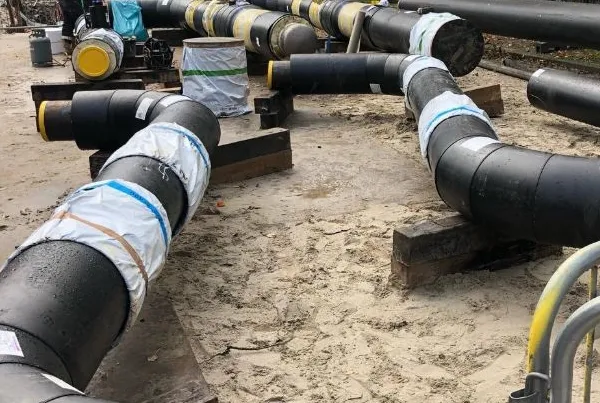
Application for Pipe Spools
Pipe spools are essential components in industrial piping systems and are widely used across sectors such as oil and gas, petrochemical, power plants, chemical processing, water treatment, and shipbuilding. They serve as pre-fabricated segments of a piping network, combining pipes, fittings, and flanges into ready-to-install units. These spools are designed to match specific layout and system requirements, allowing for faster installation, reduced on-site labor, and minimized construction downtime. Their use is particularly beneficial in projects that demand high precision, tight schedules, or work in hazardous environments, as much of the fabrication is completed off-site in controlled workshop conditions.
1. Oil and Gas Industry
Used in both onshore and offshore pipeline systems, refineries, and gas processing plants, requiring resistance to high pressure, temperature, and corrosion.
2. Chemical and Petrochemical Plants
Made from stainless steel, alloy steel, or duplex stainless steel, pipe spools are used to transport aggressive chemicals safely and efficiently.
3. Power Generation
Used in thermal power plants, nuclear plants, and renewable energy systems for transporting steam, feedwater, and other fluids, requiring high precision and heat resistance.
4. Water Treatment
Used in clean water distribution and wastewater systems, ensuring easy installation and resistance to corrosion in various environments.
5. HVAC Systems
Used in heating, cooling, and air conditioning systems in commercial and industrial buildings to reduce installation time and labor costs.
6. Shipbuilding and Marine Applications
Used in ships, offshore platforms, and submarines for fuel transfer, cooling water systems, and fire suppression, requiring corrosion resistance to seawater.
7. Mining and Mineral Processing
Used in transporting slurries, process water, chemicals, and dust suppression systems, requiring durability against abrasive wear and chemical exposure.
Factors Influencing Material Selection for Pipe Spools
The selection of materials for pipe spools is influenced by several key factors, including:
Environmental Conditions: The operating environment plays a crucial role in material selection. High temperatures, corrosive chemicals, and exposure to moisture or gases can all impact the performance of a material. For instance, stainless steel is ideal for corrosive environments, while carbon steel is better suited for non-corrosive applications.
Pressure and Temperature: The pressure and temperature of the fluids or gases being transported affect the strength requirements of the material. Alloy steel and stainless steel are commonly chosen for high-pressure and high-temperature applications due to their enhanced mechanical properties.
Corrosion Resistance: Corrosion resistance is a critical factor, especially in industries like oil and gas, where pipes are exposed to harsh chemicals or seawater. Materials like stainless steel, duplex stainless steel, and corrosion-resistant alloys are preferred for such environments.
Cost Considerations: Budget constraints often influence material selection. While high-end materials like stainless steel offer excellent durability and resistance, they come at a higher cost.
Carbon steel, on the other hand, is more affordable and may be used when corrosion resistance is not as critical.
Project Specifications: Each piping system has specific design and operational requirements, including pipe diameter, joint design, and system configuration. The materials chosen must align with these requirements to ensure optimal performance and longevity.
Conclusion
The materials used for
pipe spools must be carefully selected to meet the unique demands of each application. Whether it's carbon steel for cost-effective solutions, stainless steel for corrosion resistance, or alloy steel for extreme conditions, the right material ensures the piping system operates safely and efficiently. Proper material selection also contributes to the durability of the system, reducing the risk of failures and minimizing maintenance costs. By understanding the properties of different materials and their applications, industries can make informed decisions that guarantee long-lasting, reliable piping systems.








 English
English Español
Español بالعربية
بالعربية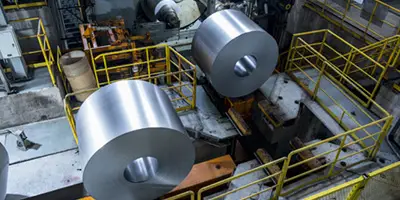

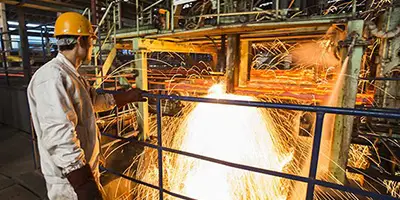
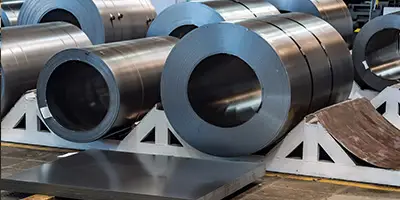

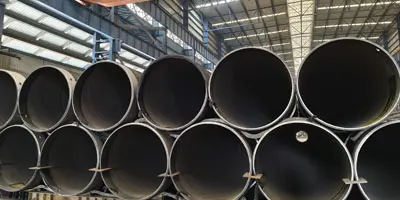
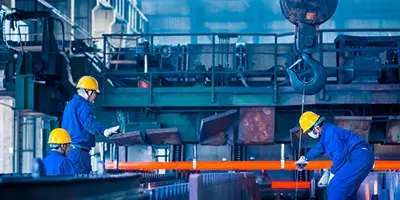
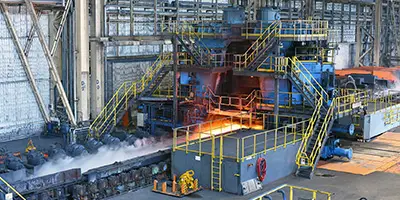
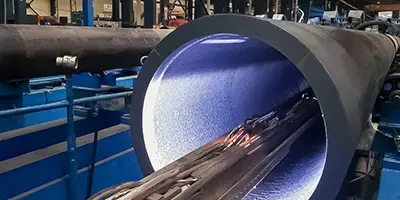
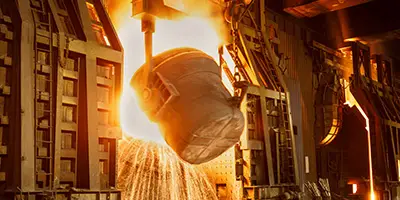


 Phone :
Phone :  Whatsapp :
Whatsapp :  Email :
Email : 


